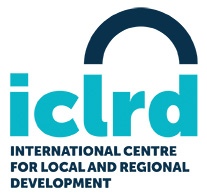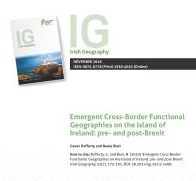Abstract
The notion of ‘functional geographies’ has gained momentum across academic and policy communities in recent decades. In an EU context, the elevation of territoriality and functionality in policy-making has drawn attention to ‘spatial context and distribution’ (Faludi and Peyrony, 2011) and ‘place-based’ approaches (Nosek, 2017) for nurturing a more just distribution of opportunities in places, across various spatial scales and between European territories. Following twenty years of peace, the island of Ireland has witnessed a degree of convergence around governance structures and the expansion of relational cooperative spaces that reflect complex socio-economic functional relationships that stretch across territorial geographies. The associated policy making and institutional mechanisms can operate through traditional ‘hard’ bureaucratic procedures or through innovative ‘soft’ spaces that work with, and operate across, ‘fuzzy boundaries’, negotiating mutual thematic policy areas. Reflecting on the legacy of social, economic and infrastructure integration and policy convergence to date, this paper explores the vulnerability of existing cross-border functional geographies given the uncertainties posed by Brexit. In considering the pre- Brexit – and an uncertain post-Brexit – context, the paper examines empirical findings from key actors about cooperation and the activities, flows and linkages that occur in cross-border functional geographies on the island of Ireland.
Click link below to download the report from the Irish Geography website
http://www.irishgeography.ie/index.php/irishgeography/article/view/1400

